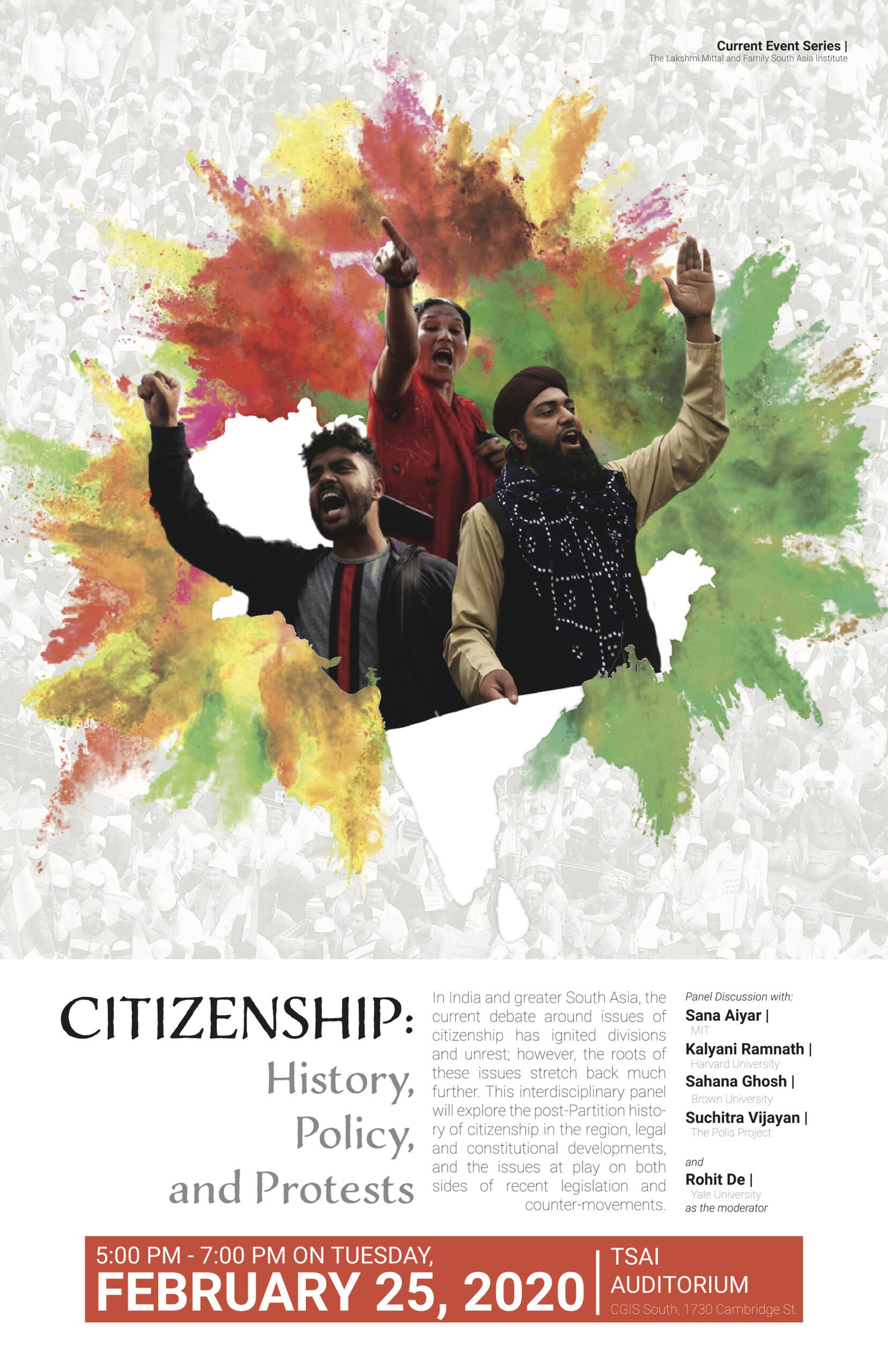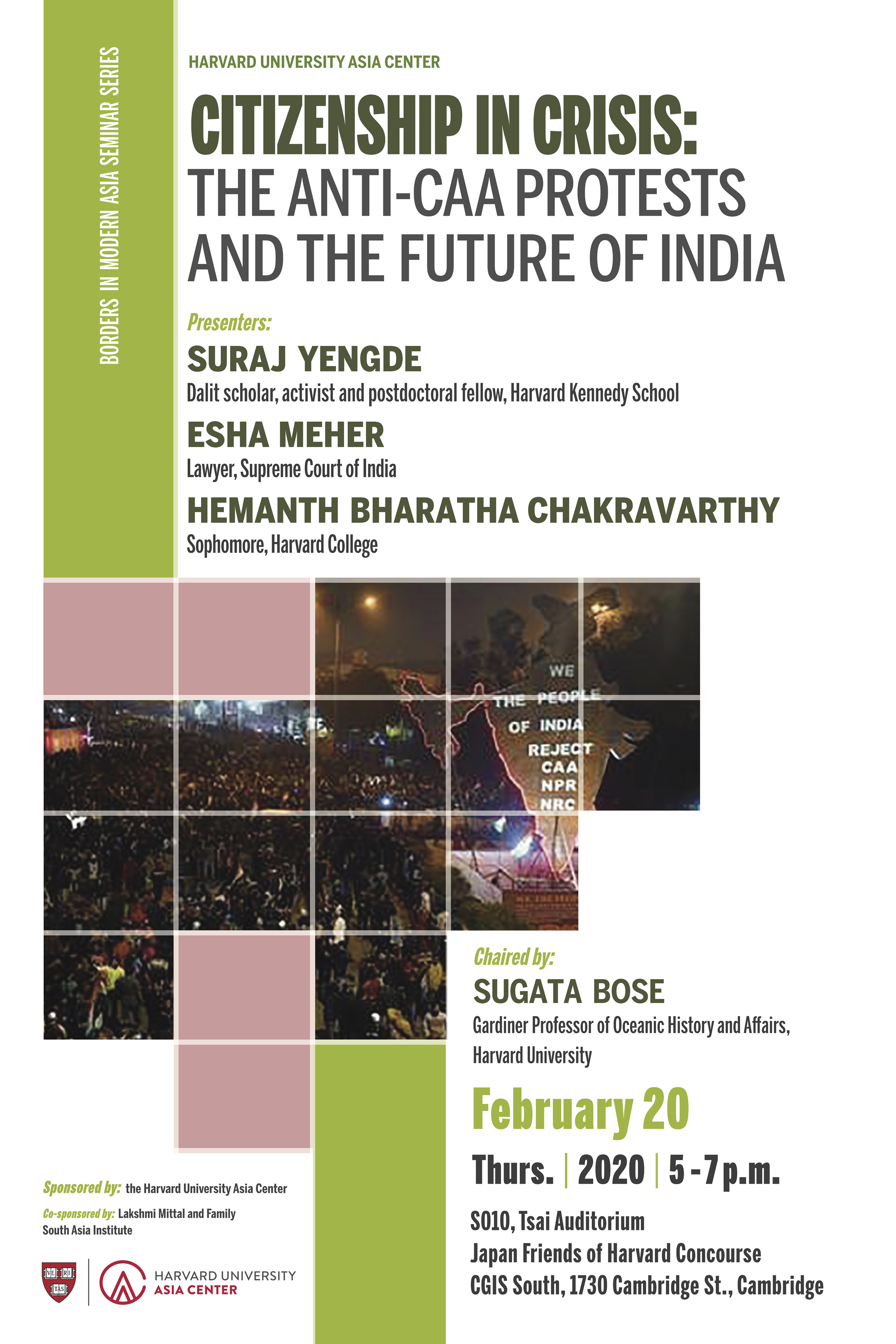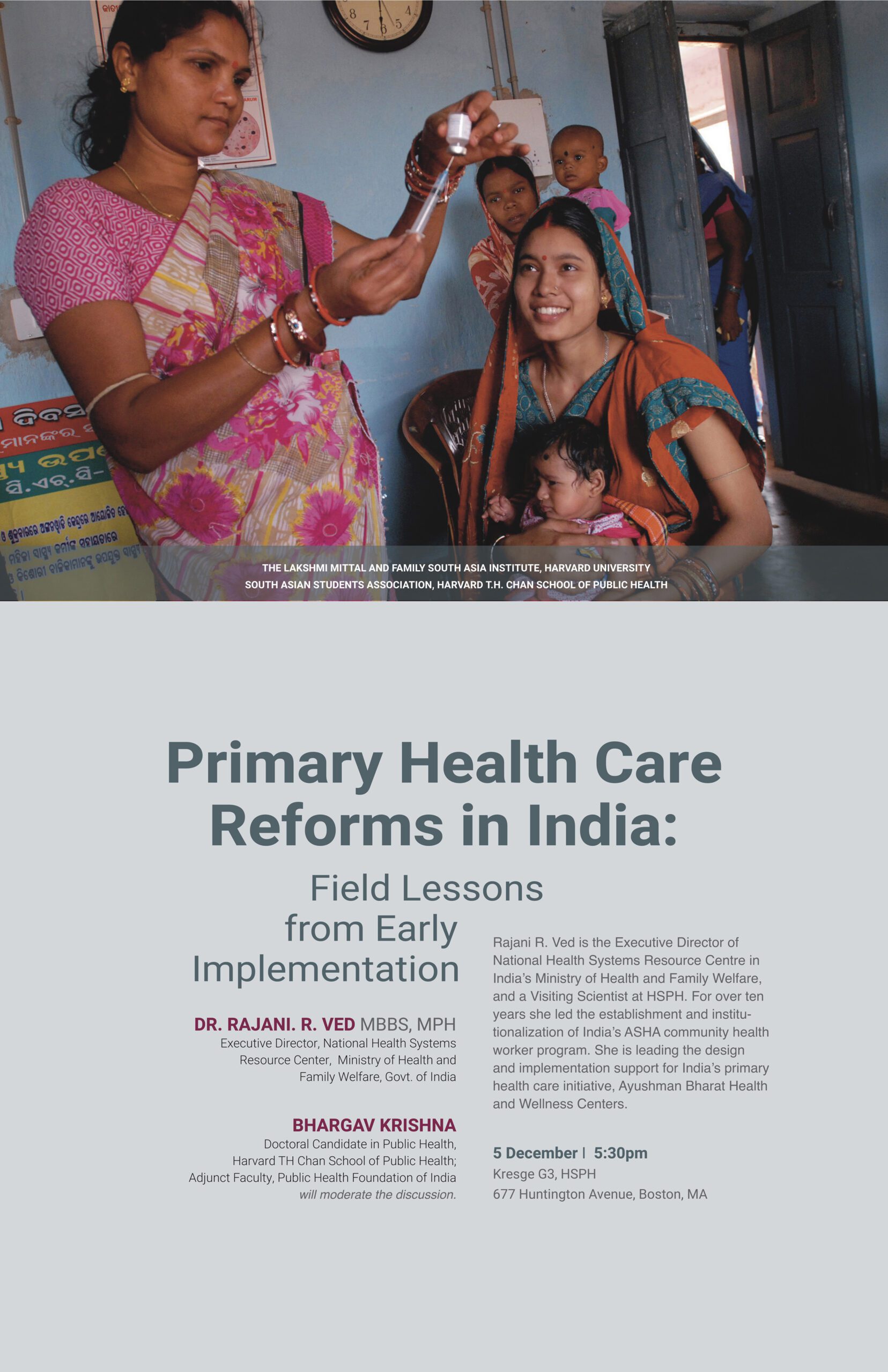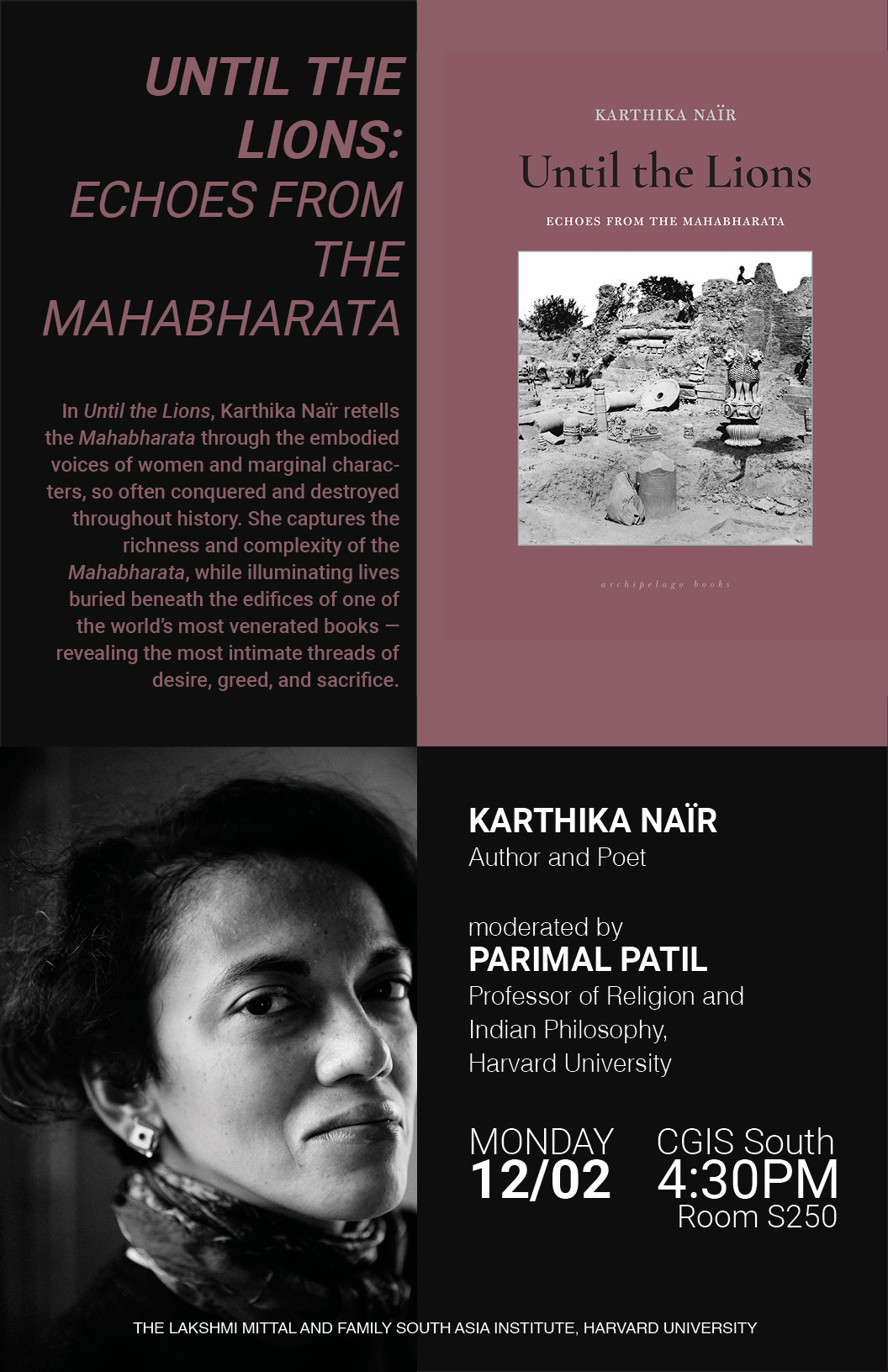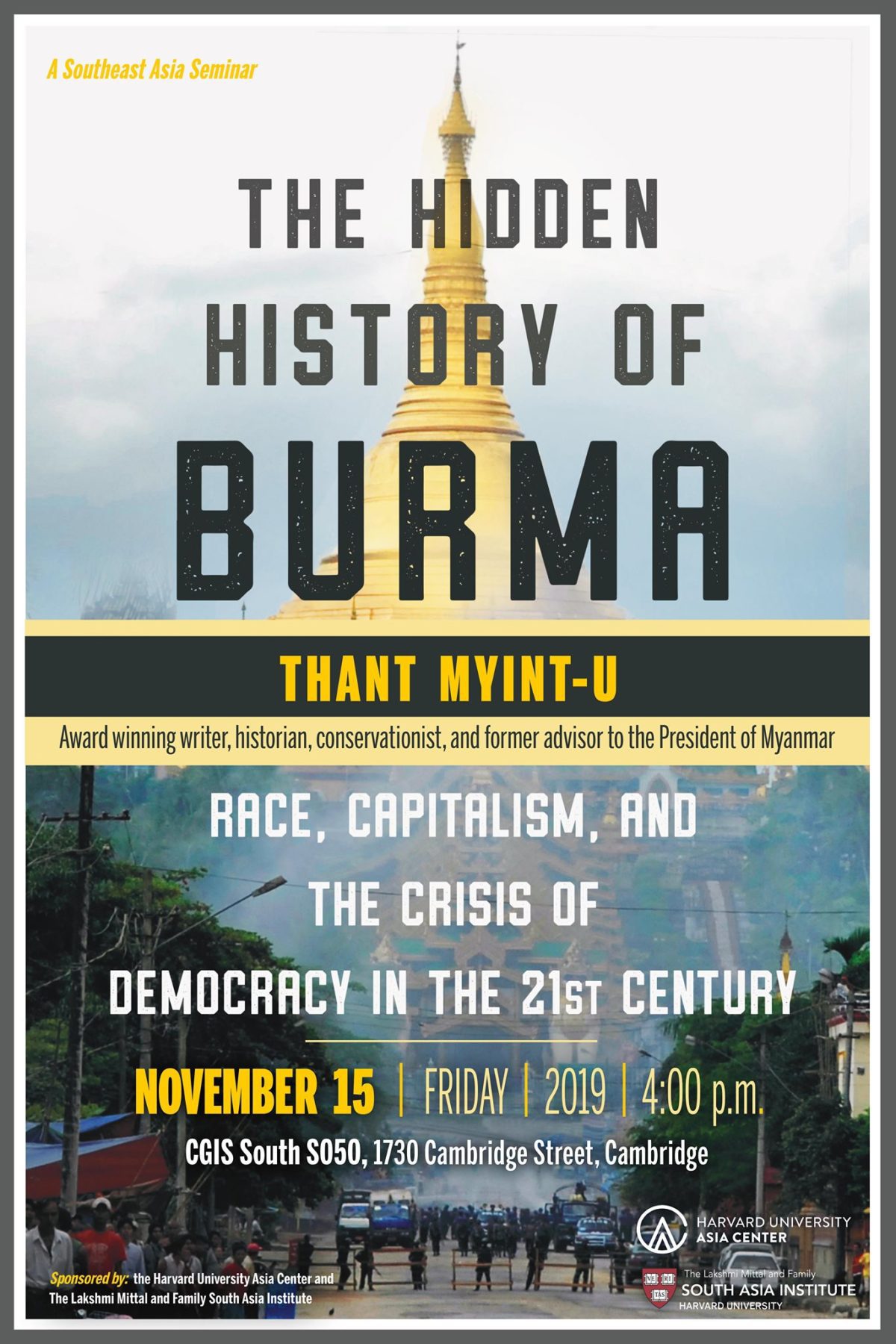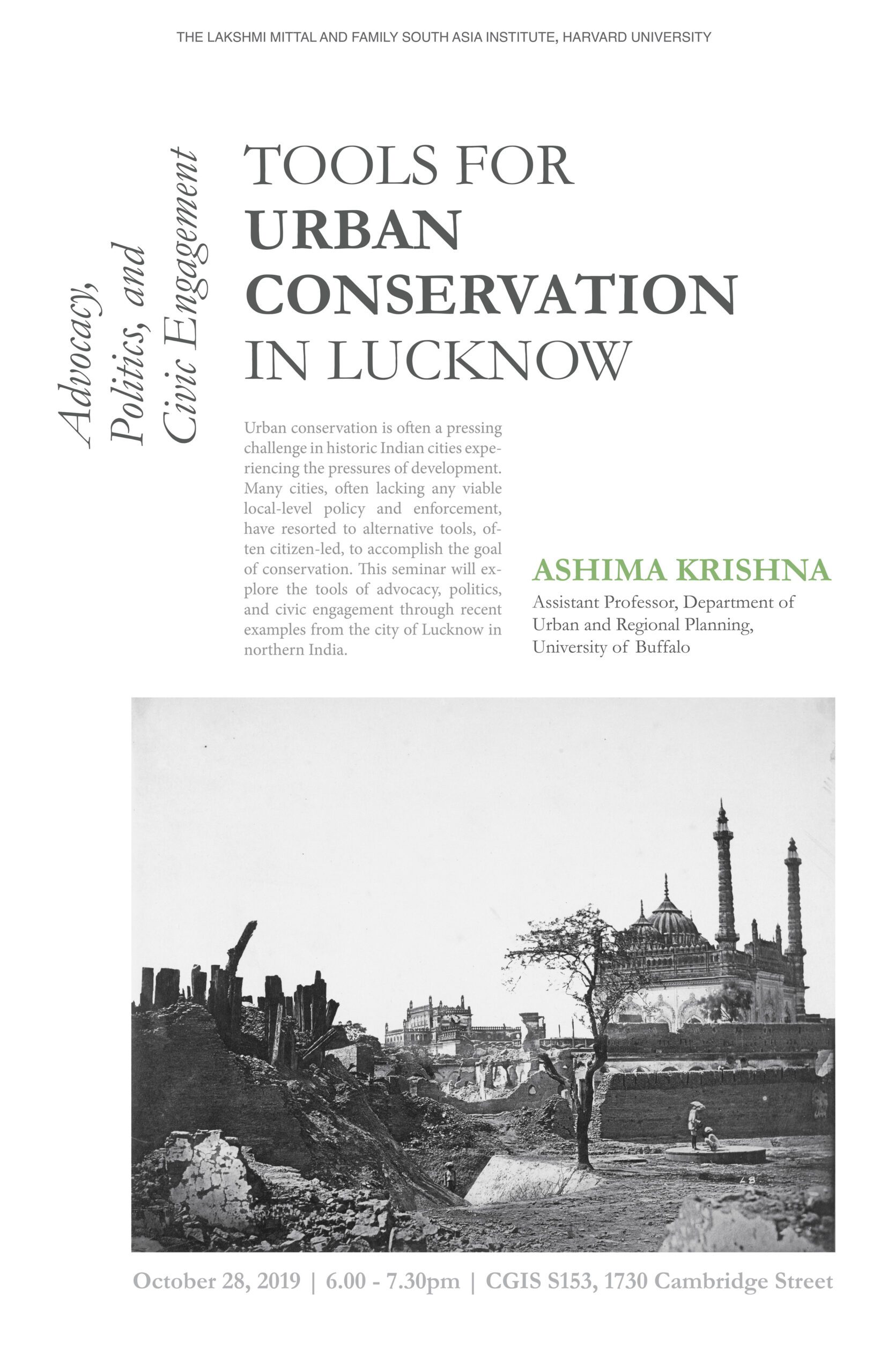WHEN
Fri, Jun 5, 2020 from 09:00am — 10:30am, ET
NO REGISTRATION REQUIRED 9:00–10:30 AM EST // 6:00–7:30 PM PKT // 6:30–8:00 PM IST // 7:00–8:30 PM BST Venue: Virtual via Zoom: https://harvard.zoom.us/j/95880357744 This event will also be streamed on YouTube: https://youtu.be/NhcBsgX5C0M Panelists Tarun Khanna, Jorge Paulo Lemann Professor, Harvard Business School; Director, The Mittal Institute Rajeeb Samdani, Co-Founder and Trustee, Samdani Art Foundation; Managing […]
More InfoWHEN
Tue, Feb 25, 2020 from 05:00pm — 07:00pm, ET
In South Asia, the current debate around issues of citizenship has ignited divisions and unrest; however, the roots of these issues stretch back much further. This interdisciplinary panel will explore the post-Partition history of citizenship in the region, legal and constitutional developments, and the issues at play on both sides of recent legislation and counter-movements. […]
More InfoWHEN
Thu, Feb 20, 2020 from 05:00pm — 07:00pm, ET
The panelists will discuss India’s recent legislation on citizenship and what it means for the nation’s future. This event is hosted by the Harvard University Asia Center and co-sponsored by the Mittal Institute. Speakers: Suraj Yengde, Dalit scholar, activist, and postdoctoral fellow, Harvard Kennedy School Esha Meher, Lawyer, Supreme Court of India Hemanth Bharatha Chakravarthy, […]
More InfoWHEN
Mon, Dec 2, 2019 from 04:30pm — 06:00pm, ET
Speaker: Karthika Naïr, Author and Poet Moderator: Parimal Patil, Professor of Religion and Indian Philosophy, Harvard University In Until the Lions, Karthika Naïr retells the Mahabharata through the embodied voices of women and marginal characters, so often conquered and destroyed throughout history. She captures the richness and complexity of the Mahabharata, while illuminating lives buried […]
More InfoWHEN
Thu, Nov 21, 2019 from 06:00pm — 07:30pm, ET
Speaker: Naveen Bharathi, Mittal Institute Raghunathan Family Fellow, 2019-2020 Moderator: Sai Balakrishnan, Assistant Professor of Urban Planning, Harvard Graduate School of Design This presentation will show how residential caste-segregation is independent of city size, using the first-ever large-scale evidence of neighborhood-resolution data from 147 of the largest cities in contemporary India. Bharathi will discuss one […]
More InfoWHEN
Tue, Nov 5, 2019 from 06:00pm — 07:30pm, ET
Economic corridors — ambitious infrastructural development projects throughout Asia and Africa — are dramatically redefining the shape of urbanization. As these corridors cut across croplands, the conversion of agricultural lands into new urban uses has erupted in volatile land conflicts. This talk will focus on urbanization along the first economic corridor built in India, the […]
More InfoWHEN
Mon, Oct 28, 2019 from 06:00pm — 07:30pm, ET
Urban conservation is often a pressing challenge in historic Indian cities experiencing the pressures of development. Many cities, often lacking any viable local-level policy and enforcement, have resorted to alternative tools, often citizen-led, to accomplish the goal of conservation. This seminar will explore the tools of advocacy, politics, and civic engagement through recent examples from the city of Lucknow in northern India.
More Info


